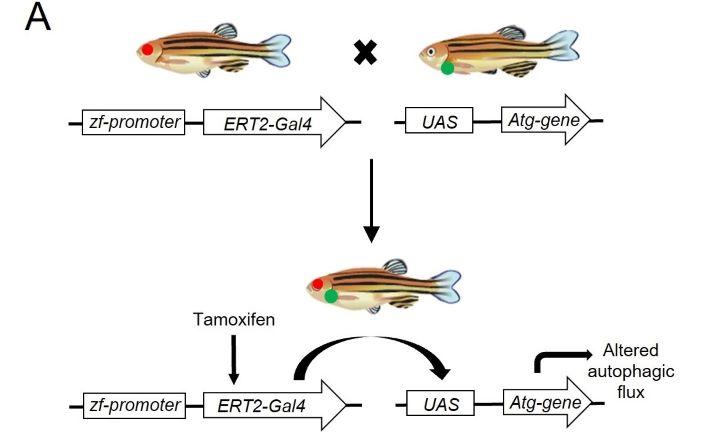
Submitted by Emily Rigby on Tue, 13/06/2023 - 13:23
A new paper by the Fleming lab, and published in Autophagy, presents their findings from the development of an inducible expression system to up- or downregulate autophagy in vivo, in zebrafish.
Autophagy is a process that occurs inside cells that allows them to clear damaged, misfolded or aggregated proteins and damaged organelles. Defects in this process are associated with various degenerative diseases such as those affecting the brain and muscle, as well as cancers and ageing. The Fleming lab study how defects in autophagy can lead to neurodegeneration (e.g. diseases such as Alzheimer’s disease, Parkinson’s disease and Huntington’s disease) using zebrafish as a model organism. They have recently developed a method that allows them to control autophagy in different cell types in live zebrafish larvae. This inducible gene expression system will allow them to investigate how changes in autophagic flux affect disease progression in vivo.
View the full paper here: https://www.tandfonline.com/doi/full/10.1080/15548627.2022.2135824

